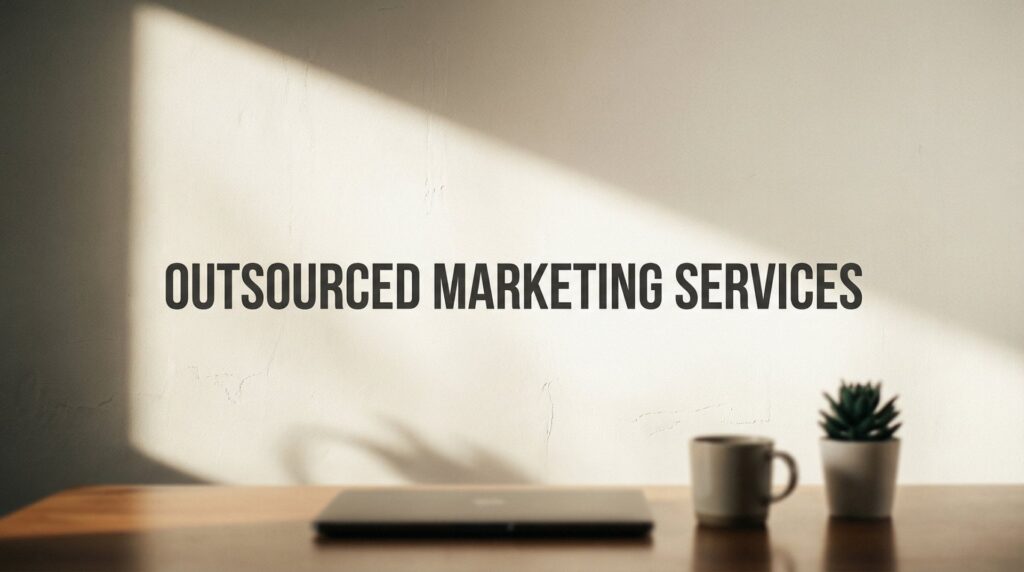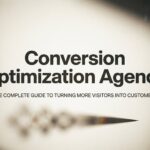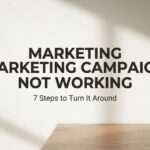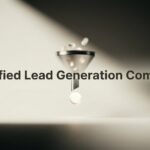SEO for a water damage company is about one thing: making your phone ring when a local homeowner is in crisis. When a pipe bursts at 2 AM, they grab their phone and search for help right now. Good SEO for water damage companies puts your business at the top of that search list, making you the first call they make.
In Short: SEO connects your emergency services to a customer's urgent problem the moment it happens.
Why Your Business Lives or Dies on Google
Let's be direct. For a water damage company, your most important service vehicle isn't a truck—it's your website's rank on Google. This is the lifeline of your business in a competitive industry. If you don't have a strong online presence, you're invisible to people who desperately need you.
Think about the last time you needed an emergency plumber. You probably pulled out your phone and searched. Your potential customers are doing the same thing, usually stressed out and standing in a puddle.
The Modern Customer Journey in a Crisis
The path from a flooded basement to calling your business is incredibly short. It almost always starts with a frantic search like "emergency water damage help near me" and ends with a call to one of the first few companies that pop up. This is how a homeowner's urgent search turns into a paying job when your SEO is working correctly.
The big takeaway? Being visible at the precise moment of need is everything. If you’re not on the first page of Google, you might as well not exist.
A Crowded and Growing Field
The restoration industry is packed, which makes a smart digital strategy even more critical. You're up against over 35,000 other companies in the U.S. alone. This market is on track to hit $7.1 billion in revenue by 2025, with a steady 4.5% annual growth.
The numbers don't lie. Companies that invest in SEO get a huge leg up. A staggering 78% of local mobile searches for services like water damage restoration result in a call or visit within 24 hours. You're not just getting traffic; you're getting emergency leads.
🔑 Key Idea: SEO connects your solution to their problem at the exact moment it happens. It’s the most direct and powerful way to get high-quality, urgent leads.
The Pillars of a Winning SEO Strategy
To get a handle on this, you need to see how the pieces fit together. This isn't one magic trick; it's about building a solid foundation across several key areas of SEO. Each one plays a distinct role in convincing Google—and your potential customers—that you're the right company for the job.
Core SEO Pillars for Water Damage Restoration
| SEO Pillar | What It Is | Why It Matters for Water Damage |
|---|---|---|
| Keyword Research | Finding the exact search terms people use in a crisis. | You need to show up for "24/7 flood cleanup," not just "home repair." |
| On-Page SEO | Optimizing your website's pages to be clear and authoritative. | Google needs to instantly know you serve a specific town and handle emergencies. |
| Local SEO | Dominating the map and local search results in your service area. | This is how you get calls from people in your neighborhood who need help now. |
| Content Marketing | Creating helpful articles and guides that build trust. | Answering questions like "what to do after a pipe bursts" makes you the expert. |
| Link Building | Getting other reputable local websites to link back to you. | Links act as "votes of confidence," boosting your credibility with Google. |
| Tracking & Analytics | Measuring what works so you can do more of it. | You need to know which efforts are actually making the phone ring. |
Each of these pillars is a critical component of a system designed to bring you more business.
To really get why this matters so much, it helps in understanding what search engine optimization is at a fundamental level. It’s not about gaming the system. It's about proving to search engines that your business is the most relevant and trustworthy answer to someone's urgent problem.
Our own guide on SEO for restoration companies dives even deeper into these strategies. For now, let’s get into the practical, real-world methods that will make sure you're the first one they call.
Winning the Neighborhood with Local SEO
Let's be real. When a homeowner's basement is flooding, they aren't looking through a national directory. They're grabbing their phone and searching for a local crew that can get there fast.
This is where the battle for emergency calls is won or lost. It all comes down to local SEO. Your goal is to be the first, most obvious choice for every panicked homeowner in your service area. This isn't just about popping up on a map; it's about sending every possible signal to Google that you are the go-to emergency expert in town.
Your Google Business Profile Is Your Digital Storefront
Think of your Google Business Profile (GBP) as your most valuable piece of digital real estate. It's your billboard, business card, and trophy case of five-star reviews all in one. For a water damage company, a top-notch GBP isn't just nice to have—it's everything.
This is the control panel for how you show up in local searches and on Google Maps. It's ground zero for your local strategy.
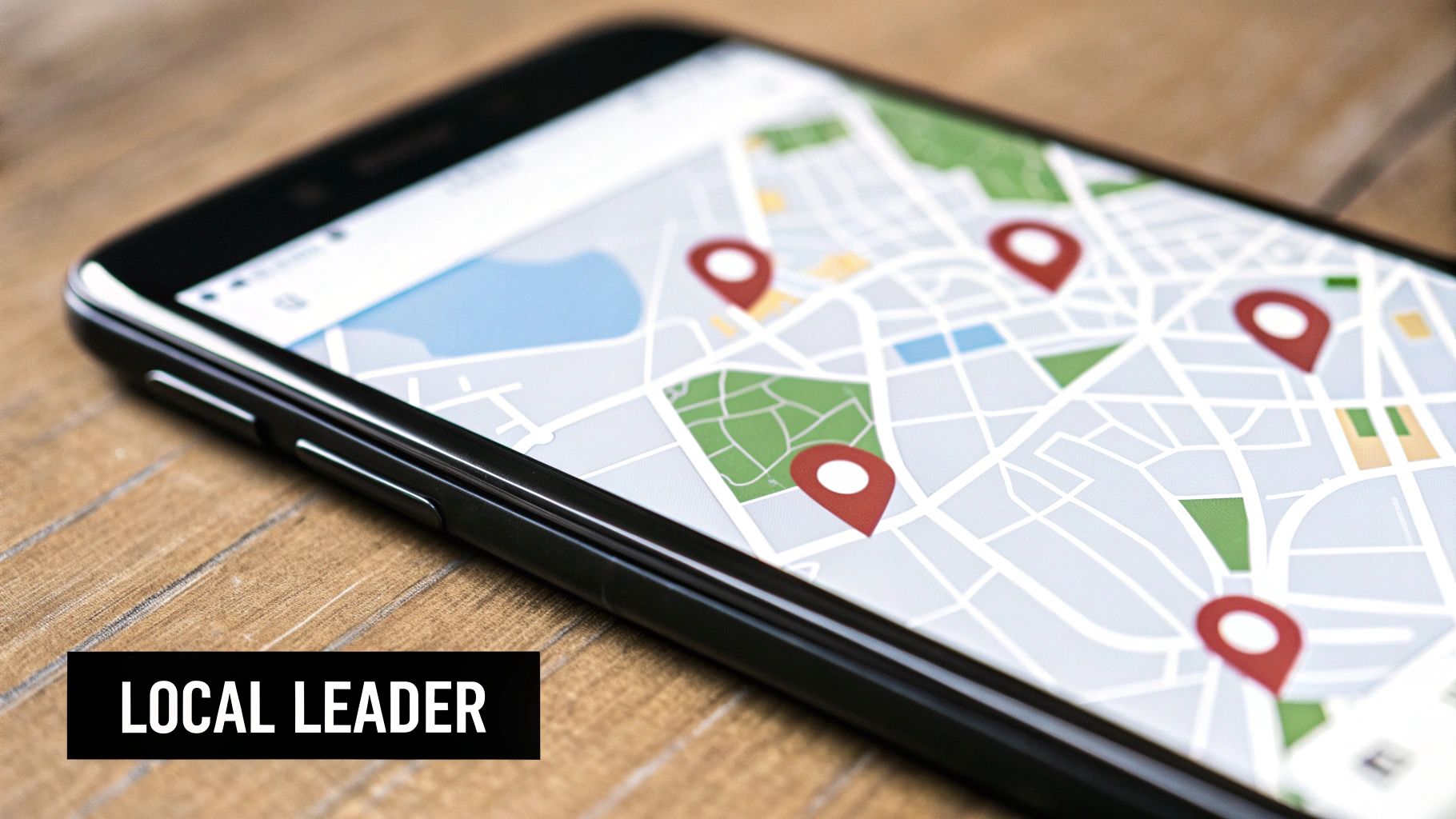
In Short: A fully loaded Google Business Profile is the quickest way to get in front of local customers who need your help right now.
To turn your profile into a lead-generating machine, you have to use every feature. Just listing your name and number won't cut it.
- Service Areas: Don't just pin your office location. Spell out every single town, city, and zip code you cover. This is how you show up for those "near me" searches.
- Services: Get specific. "Water damage restoration" is too broad. Add services like "burst pipe cleanup," "basement flood extraction," "sewage backup removal," and "24/7 emergency water removal." Match what customers actually type into Google.
- Photos & Videos: Show, don't just tell. Upload real photos of your team in action, your branded trucks, and your equipment on a job site (with client permission). This builds instant trust.
- Google Posts: Use this feature. Post updates during a storm, share quick tips on preventing water damage, or run a special on mold testing. It shows Google you're active.
Creating Geo-Targeted Service Pages
Your GBP gets you on the map, but your website has to seal the deal. One of the smartest plays is creating geo-targeted service pages. These are pages on your site dedicated to a specific service in a specific town.
For example, instead of one generic "services" page, you build out pages like:
- Basement Flood Cleanup in Springfield
- Emergency Water Removal in Shelbyville
- Hardwood Floor Water Damage Repair in Ogdenville
These pages tell Google and customers, "Yes, we are the experts in your town." For a deeper dive, our guide on local maps SEO has more strategies.
The Power of Consistent NAP Citations
Google loves consistency. It wants to see your business's Name, Address, and Phone number (NAP) listed the exact same way across the web.
These listings, called citations, are like votes of confidence from sites like Yelp, Angi, and the Better Business Bureau. They tell Google you’re a real, established local business. Inconsistencies can seriously hurt your local rankings.
Why Reviews Are Your Best Sales Team
In an emergency, people need proof that others in their shoes trusted you. That proof is your reviews. A steady stream of new, positive Google reviews is one of the most powerful ranking factors for local SEO.
Ask for them right after the job is done, when the homeowner is relieved and grateful. A quick text or email with a direct link to your GBP review page can work wonders.
The Growing Demand for Your Services
The need for your skills is growing. The property restoration industry is booming, partly due to an increase in natural disasters.
Between 2019 and 2023, the U.S. had over 100 billion-dollar disasters, averaging around 20 major events each year. This trend fuels massive demand, with about 20% of restoration companies specializing in water damage. You can read more in the industry outlook on PuroClean's franchise site.
This makes a rock-solid local SEO strategy more critical than ever.
Turning Your Website Into a Lead Machine
Getting someone to click on your website is a huge win, but it's only half the battle. Once they land on your site, you have seconds to convince a panicked homeowner that you’re the right crew to call. This is where your on-page SEO and user experience (UX) become powerful sales tools.
Your website needs to be a lean, lead-generating machine built for someone in crisis. Every element has to scream "fast," "trustworthy," and "available now." Forget fancy animations. When water is pouring through the ceiling, people need immediate answers.

Design for a Crisis, Not a Casual Browse
Think about the user's mindset. Their world is chaos, and your website design has to reflect that. The goal is to make calling you the easiest thing they do all day.
Here are the non-negotiables your website needs:
- A Massive, Click-to-Call Phone Number: It should be big, bold, and at the top of every page. On mobile, it must be a tappable link that instantly dials your number.
- A Bold '24/7 Emergency Service' Banner: This is a lifeline. Immediately reassure visitors you’re available right now.
- Immediate Trust Signals: Display your IICRC certification, BBB rating, and "We Work With All Insurance Companies" right on the homepage. Build credibility in a heartbeat.
These aren't just minor design choices. They're critical conversion tools.
How do I make my water damage website more effective?
You make it effective by focusing on three things: speed, trust, and clarity.
- Make your 24/7 emergency phone number huge and clickable on every page.
- Put your trust badges—like IICRC certification and insurance compatibility—front and center.
- Use real photos from your job sites, not cheesy stock photos. Your pages have to be easy to scan on a phone.
Structuring Service Pages That Actually Convert
Your individual service pages—like "Flood Cleanup"—are where you close the deal. These pages need to be laser-focused, answering urgent questions while also checking the right boxes for Google.
🔑 Key Idea: Don't just list what you do. Briefly explain why it's important. For "Water Extraction," add a line like, "We remove standing water fast to prevent secondary damage and mold growth." This shows expertise and builds confidence.
Here’s a practical checklist for your service pages.
On-Page SEO Checklist for Restoration Websites
| Checklist Item | Why It's Critical | Quick Tip |
|---|---|---|
| City-Specific Headline | Tells users and Google you're local and relevant to their emergency. | "Fast Sewage Backup Cleanup in [Your City]" is better than "Sewage Services." |
| Click-to-Call Number | Panicked users are on their phones. Make it easy for them to call you instantly. | Place your number at the top and bottom of the page, and make it tappable. |
| Scannable Bullet Points | Nobody reads walls of text in a crisis. Break down your process into easy steps. | Use bullet points: Emergency Assessment, Water Removal, Drying, etc. |
| Authentic Job Site Photos | Real photos build trust. Stock images can look fake. | Show your team and equipment in action. Before-and-after shots are pure gold. |
| Simple Contact Form | Don't ask for their life story. Make the form short and to the point. | You just need a name, phone number, and a brief message field. That's it. |
| Clear Trust Badges | Logos like IICRC, BBB, and "Fully Insured" offer instant peace of mind. | Place these "above the fold" so they're visible without scrolling. |
For a deeper look at your overall strategy, this comprehensive water damage contractors marketing plan is an excellent resource.
Why is mobile-first design essential for restoration companies?
It’s essential because most people in a water emergency will grab their smartphone. They aren't booting up a desktop computer while their basement floods. If your site is hard to use on a phone—if text is tiny or the phone number isn’t clickable—they will hit the back button and call your competitor in seconds. A flawless mobile experience is tied to your bottom line.
What should be on the homepage of a water damage company?
Your homepage needs to answer three questions immediately: are you local, are you available 24/7, and can I trust you? The must-have elements are a giant click-to-call phone number, a "24/7 Emergency Service" banner, your trust seals (IICRC, BBB), a clear list of core services, and a few powerful testimonials from local customers.
For more general advice, check out these proven strategies to improve website conversion rates to make sure your site is always working for you.
Your Content Must Solve Urgent Problems
When someone's basement is turning into a swimming pool, they aren't browsing for a good read. They're frantically searching for an expert. Your content marketing must make you that expert before they even pick up the phone.
Your content needs to tackle the specific, urgent problems people face in a crisis. The goal isn't just to rank on Google; it's to provide helpful advice that builds instant trust. When you answer their panicked questions with calm guidance, you become the obvious choice to call.
The damage restoration market is blowing up. In 2024, it's a $13.8 billion industry and projected to hit $22.6 billion by 2030. This growth is fueled by an increase in water-related disasters. If you want to dig into the numbers, DataHorizzon Research has a full market report.
Answer the Questions People Are Actually Asking
Solid SEO for water damage companies means getting inside the head of a stressed-out homeowner. What are they typing into their phone with shaky hands?
Your content strategy should revolve around these real-world questions:
- Pipe just burst, what do I do first?
- Can we sleep in our house with this much water damage?
- How much does it cost to clean up a flooded basement?
- Are my warped hardwood floors a total loss?
- What's the difference between clean water and black water?
Every question is a perfect topic for a blog post or an FAQ page. By creating content that gives a straight answer, you attract people who are one click away from needing your services.
What Kind of Content Works Best?
Your content needs to be practical and easy to skim on a phone. Think less about long essays and more about formats that deliver quick, actionable info.
Here are a few article ideas that drive the right kind of traffic:
- First-Steps Checklists: A simple, printable checklist like, "Just Found Water Damage? 5 Things to Do Right Now (and 3 Things You Should Never Do)."
- Scenario-Specific Guides: Get detailed with posts like, "Your Sump Pump Failed. Here’s What to Do Next."
- Cost & Insurance Explainers: Tackle the money question directly. An article like, "Decoding Your Insurance Policy for Water Damage: What's Usually Covered?" is pure gold.
In Short: When you prioritize educating over selling, you build the trust needed to get that emergency call.
How to Write a Blog Post for Someone in a Panic
Writing for someone in crisis mode is different. You need to be direct, simple, and empathetic.
Use short sentences. Keep paragraphs to just a couple of lines. Break up text with bolding, headings, and bullet points so it's scannable.
Start with a title that matches what they searched for, like, "What to Do When Your Washing Machine Hose Bursts." The first sentence should offer reassurance. Then, jump into a clear, step-by-step format. Numbered lists are your best friend here.
Building Authority That Google Trusts

Okay, you’ve dialed in your website and local profiles. But to really dominate search results, Google needs to see that other websites see you as a credible source.
This is where backlinks come in. A backlink is a link from another website to yours. Think of it as a referral or a vote of confidence.
Every time a relevant, high-quality site links to you, it tells Google that you're a legitimate, respected player in the water damage industry.
How Do I Get Backlinks for My Restoration Company?
The best way is to mirror your real-world relationships online. Don't overcomplicate it. Who do you already work with? Who sends you business offline? The goal is to get those professional connections reflected on the web.
In Short: The most powerful local link-building strategy is getting your real-world professional network to link to your website.
Here are a few effective ways to earn those valuable "votes of confidence":
- Forge Local Partnerships: Start with the obvious partners: plumbers, roofers, insurance agents, and property managers. Ask if they have a "preferred vendors" or "resources" page where they can add a link to your site.
- Get Featured in Local News: When a big storm rolls through, local news outlets need experts. Reach out to reporters and offer your professional take on cleanup tips. A link from a local news website is pure gold.
- Join Reputable Directories: This is low-hanging fruit. Make sure you're listed with your local Chamber of Commerce and the Better Business Bureau (BBB). Don't forget major home service sites like Angi or HomeAdvisor either.
Partnering with Other Local Trades
This is your bread and butter for link building. Plumbers are usually the first to find a major leak. Roofers are there right after a storm. These are your best friends and natural referral partners.
When you build a solid relationship, asking for a backlink is a natural next step. You could even offer to write a guest post for their blog on a topic like "What to Do When You Find a Leak." It’s a win-win: they get free content, and you get a highly relevant link.
Why Does Local Authority Matter So Much for SEO?
Because it proves to Google that you're a real, trusted part of the local community. It’s that simple.
When other local businesses and news sites link to you, it confirms you're not just some random website. You're a legitimate local expert. For emergency services like water damage restoration, this is a massive ranking factor.
How can I get my business in the local news?
It's easier than you think. Make a list of local reporters who cover business or community news. Follow them on social media.
When a relevant event is on the horizon—like a seasonal storm warning—shoot them a quick, helpful email. Offer a few expert tips or your professional opinion. Make their job easy, and you’ll be surprised how often they'll take you up on it and give you a mention.
Straight Talk on SEO: Your Top Questions Answered
When I talk to restoration company owners, the same questions always come up. You’re busy running a business, dealing with emergencies, and need to know if this whole SEO thing is actually worth the time and money.
Let's cut through the jargon. SEO for a water damage company is a different game. Your customers are in a state of panic and need help now.
How Long Does This Actually Take to Work?
This is always the first question. The honest answer? It depends.
- Local SEO can give you a quick boost. Dialing in your Google Business Profile and getting new customer reviews can show results in just a few weeks.
- Website SEO for valuable keywords like "water damage repair [your city]" is a long game. You're building a real asset. Expect to see a steady, meaningful increase in leads in about 4 to 6 months.
Local SEO vs. Website SEO: What’s More Important?
They’re completely intertwined, but there’s a clear order of operations.
Local SEO is your absolute priority. Period. It’s what gets your business name and phone number in front of someone in your service area searching on their phone. Your goal is to own the Google Maps "3-pack."
But your website is what closes the deal. They find you on the map, but they’ll almost always click through to your site to check you out. That's where solid on-page website SEO comes in.
In Short: Local SEO gets you the first look, but your website gets you the call.
Should I Just Pay for Ads or Do SEO?
It’s not about choosing one over the other; it’s about understanding what each tool is for.
- Paid Ads (PPC): This is like flipping a switch for leads. You want calls tomorrow? PPC can make it happen. You're renting the top spot on Google. The catch? The second you stop paying, the leads vanish.
- SEO: This is more like buying real estate. It’s an upfront investment that builds on itself. Once you earn top organic rankings, the clicks you get are "free." It creates a sustainable flow of jobs that you own.
The smartest play is often to use both. Run a targeted PPC campaign for immediate calls while your long-term SEO foundation is being built.
Can I Handle the SEO for My Business Myself?
Yes, you can… to a point. And there are parts you should be doing yourself.
You should be responding to reviews, uploading real job site photos, and answering common questions from homeowners on your blog.
But the deep, technical side of SEO for water damage companies is a different story. Things like a full website audit, building the right backlinks, or optimizing site speed are specialized skills. Most owners find it’s more effective to focus on managing their crews while letting a pro handle the marketing engine.
At Clicks Geek, we specialize in turning your online presence into a predictable lead generation machine. If you're ready to stop guessing and start getting more calls, our team can build a custom SEO strategy that puts you in front of the customers who need you most. Learn more at https://clicksgeek.com.
Want More Leads for Your Business?
Most agencies chase clicks, impressions, and “traffic.” Clicks Geek builds lead systems. We uncover where prospects are dropping off, where your budget is being wasted, and which channels will actually produce ROI for your business, then we build and manage the strategy for you.


